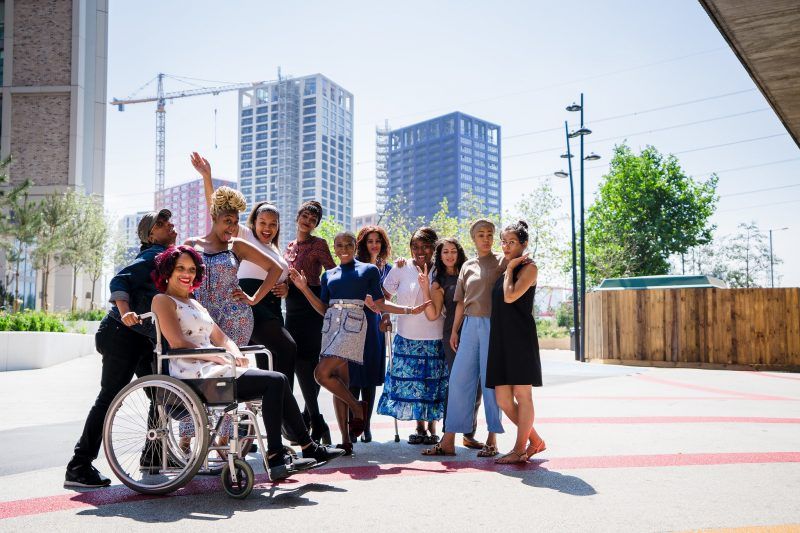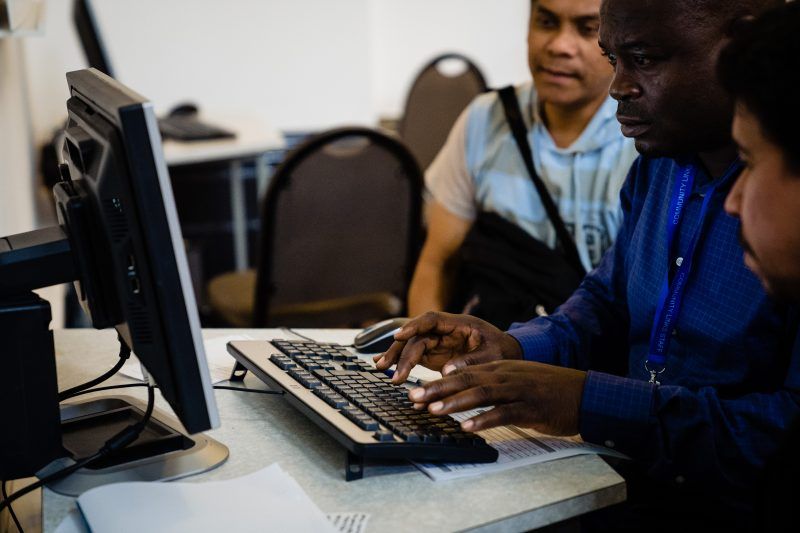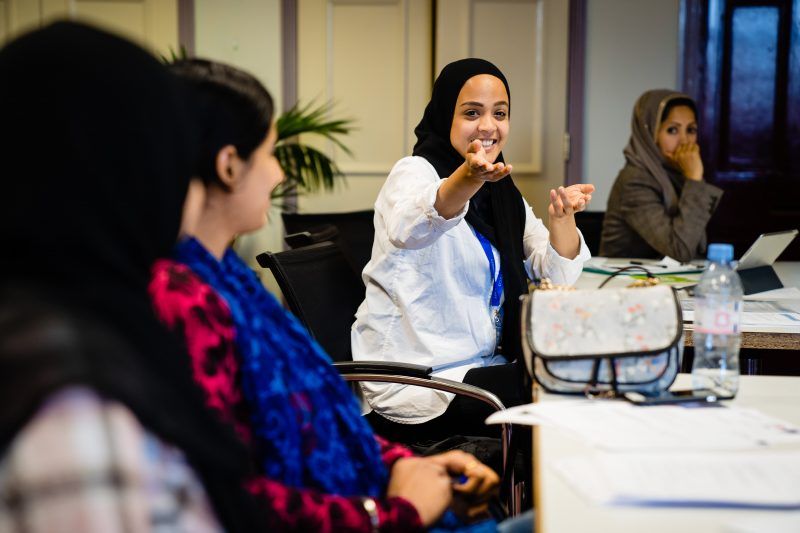With diversity, we discover that although people have common traits, they are also different in many ways. Inclusive workplaces help us to embrace these differences and to recognise that they are beneficial, opening up a wider range of knowledge and skills which can lead to better possibilities in society and at work. Diversity and inclusion are also essential in today’s world if we want to minimise the cultural barriers between people from different ethnic backgrounds.

Barriers to employment for BAME women
According to latest the Race At Work survey, there are around 20.9 million women of working age in the U.K. of whom only 2.9 million (14%) are of Black, Asian, and Minority Ethnic (BAME) background. Through our research at Community Links, we have examined (through literature reviews and focus groups) the barriers for BAME women getting into employment, particularly in East London.
These barriers include: a lack of confidence; lack of (financial) independence among the women; and social and cultural barriers (e.g. not having family support to work). An additional barrier is not having the required skills and qualifications to get into work and a lack of familiarity with recruitment processes, although some evidence suggests that even with improved technical skills BAME women still face significant barriers. A lot of the women we work with tend to struggle with a balanced family and work life and find it difficult to find employment which provides flexible hours. Another factor we have seen, particularly in our work with economically inactive BAME women, has been a lack of familiarity with recruitment processes, as a majority of women we have spoken to have either never applied for a job or have a huge gap and don’t know where to begin.
Diversity and inclusion at work
Employers and organisations should play a very important role in promoting diversity, and approaching inequality with transparency, by building a work atmosphere where everyone feels included. Although, according to the ‘Diversity and Inclusion at Work’ report by the Charted Institute of Personnel and Development (CIPD), many organisations are recognising the essence of diversity and inclusion, there are still many stereotypes and forms of discrimination which persist and act as barriers to ensuring inclusion at work.
During our research we have spoken with various employers, recruitment agencies, and job centres. We asked if they understand the importance of diversity and what policies they are actually implementing to ensure diversity and inclusion at the workplace. We have also discovered some of the stereotypes towards BAME women that some of these employers may have. For example, that BAME women are more likely family-oriented rather than career-oriented, are likely to be in a social care and support role, and that BAME women tend to stick together rather than to integrate to the working culture of the organisation/company.
Those who we spoke with also thought that BAME women are less likely have any role models and/or any higher qualification. Whilst some organisations did think that diversity is important, they did not have the correct diversity policies implemented to prove this (such as collecting the correct form of data to measure diversity and/or having diversity workshops). This is something that other organisations/employers can improve on to have a better understanding of the diversity policies. Having employability fairs where employers and BAME women have the opportunity to talk to each other and present themselves can also be a way to tackle certain stereotypes that employers may have.

Create Your Future
After indicating the issues and the barriers for BAME women trying to get into employment, it is essential that we also try to tackle them. At Community Links we try to do that with a programme that we currently have called ‘Create Your Future’ (CYF) which focuses on the leadership, empowerment, and confidence building of BAME women with the objectives of securing them into positive pathways in the form of education, training and sustainable employment. Recent research has shown that this focus on developing, trust, confidence and networks with BAME women is particularly important for tackling social and economic disengagement.
The CYF programme improves the soft skills of BAME women through:
• 8 week personal development workshops
• 1-1 support
• Goal setting
• Trips & special events
• 12 week specialist training
The programme’s model is based on the rationale: finding a voice, finding an inspiration, and finding a direction. With the CYF programme we try to tackle a lot of the barriers we have mentioned above. You can find more information on our Create Your Future page, or read a testimonial from a programme participant.
